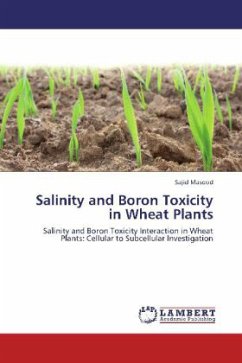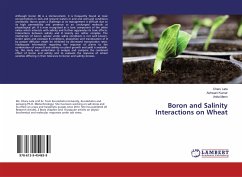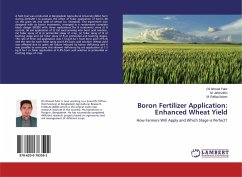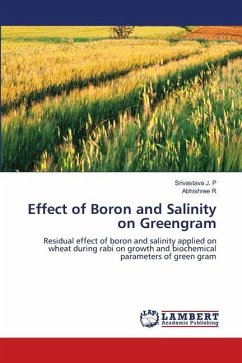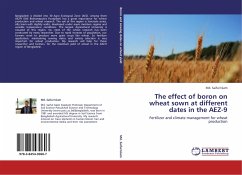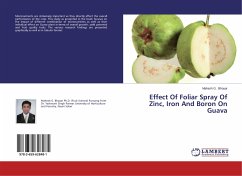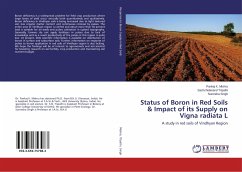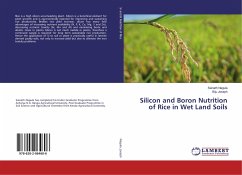Problematic NaCl and high B are major threats for the agriculture, since the crop performance is decreased under toxic concentrations of salinity and B. During ion toxic phase of salinity, moderately salt-sensitive crop such as wheat (Triticum aestivum L.) exhibit strong growth reduction, mainly attributable due to accumulation of toxic ions such as Na+, Cl- and B. These toxic concentrations affect plant metabolism and suggested to be the major cause under the simultaneous occurrence of salinity and B toxicity. Moreover, B toxicity may worsen the oxidative stress caused by the salinity and alter the biochemical properties of plant cell wall. Hence, the multiple stress of salinity and B toxicity influences the apoplastic protein pattern of wheat leaves.
Bitte wählen Sie Ihr Anliegen aus.
Rechnungen
Retourenschein anfordern
Bestellstatus
Storno

